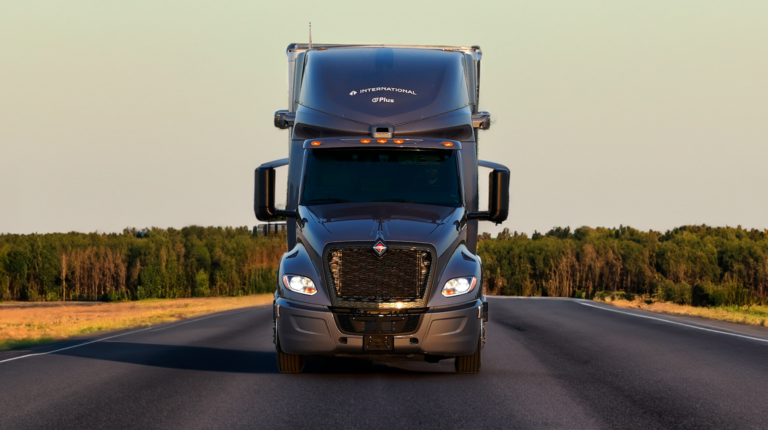International Motors (International) has launched customer fleet trials in Texas using second-generation autonomous vehicles. In partnership with Plus AI, International will begin piloting its autonomous on-highway tractor along the Interstate-35 corridor between Laredo and Dallas with select fleet operators.
The fleet trials will be managed from International’s autonomous hub in San Antonio, ensuring close collaboration with customers and a deeper understanding of real-world applications.
The second-generation autonomous tractor features an updated sensor suite and computer, which has been factory-installed on an International LT Series powered by the S13 Integrated Powertrain and the latest-generation AI-based SuperDrive autonomous driving software from Plus AI.
Trained directly from real-world driving data, SuperDrive is built on end-to-end AI models. The multimodal sensor kit combines imaging radar, lidar and strategically placed cameras around the vehicle.
“This pilot program is a big step toward seamless digital operations that are designed to deliver an exceptional customer experience,” said Tobias Glitterstam, chief strategy and transformation officer at International. “By working hand in hand with our customers, we are proving the commercial viability of autonomous technologies and providing innovative solutions that improve safety, efficiency and the bottom line.”
Collaborative innovation
As part of broader efforts to drive the future of road freight, International and Plus AI are working to bring scalable, factory-installed autonomous solutions to the transportation industry. The collaboration builds on a shared commitment to creating hardware and software solutions that are both technologically advanced and commercially viable for hub-to-hub operations.
“Deep customer collaboration is essential to understanding how autonomous systems can optimize freight routes, enhance safety and lower operating costs,” said James Cooper, director of autonomous business development at International. ”This shared learning will guide the roadmap for scaling autonomy across major freight hubs, beginning with key corridors like I-35.”
In related news, the consortium of project partners from industry, science, software development and infrastructure behind the ATLAS-L4 research and development project has presented a safety concept for autonomous trucks in road traffic


